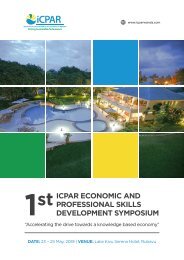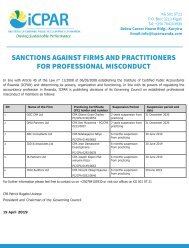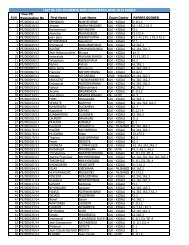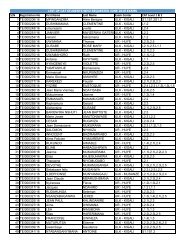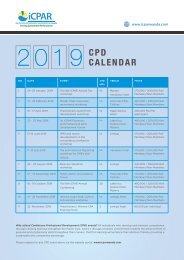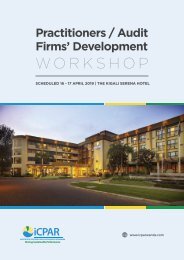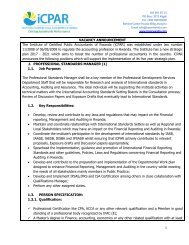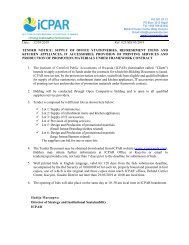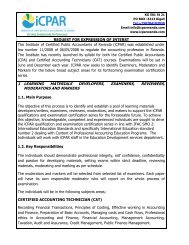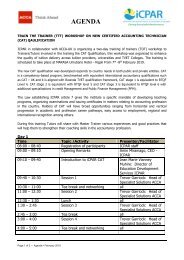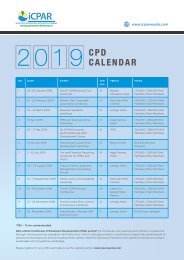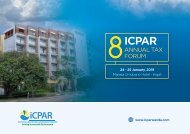iCPARQuarterlyBulletin-March2019
Create successful ePaper yourself
Turn your PDF publications into a flip-book with our unique Google optimized e-Paper software.
THE iCPAR JOURNAL 15<br />
It is in this regard that every year,<br />
ICPAR organizes a tax forum<br />
aimed at bringing members up<br />
to speed with new tax legislation<br />
in a bid to provoke learning,<br />
discussions and deliberation<br />
on recent developments in tax<br />
legislation and tax administration,<br />
devise mechanisms that ensure<br />
tax compliance among other<br />
initiatives.<br />
In his address to participants,<br />
ICPAR’s Chief Executive Officer<br />
Amin Miramago pointed out<br />
that collaborative efforts and<br />
involvement of stakeholders in<br />
increasing taxpayers’ voluntary<br />
compliance and contribution to<br />
the mitigation of potential for risk is<br />
of paramount importance.<br />
“Today the National budget<br />
is financed by more than 60%<br />
through taxes. This has been<br />
possible thanks to government’s<br />
efforts in improving tax legislation,<br />
widening the tax base as well<br />
as employment of technology.<br />
However, our role as a Professional<br />
Accounting Organization is critical<br />
to supplement government’s<br />
efforts by ensuring that our<br />
members are aware, understand<br />
and comply with tax legislation,”<br />
Mr. Miramago said.<br />
Over two days, participants had<br />
the opportunity to discuss and<br />
deliberate on the several tax<br />
laws and initiatives including the<br />
recently passed law establishing<br />
the sources of revenue and<br />
property for decentralized entities.<br />
This law replaces the previous law<br />
which had challenges including<br />
weak tax administration systems<br />
and low tax base. Key policy<br />
objectives of the new law include<br />
broadening local tax base of the<br />
property tax, encouraging efficient<br />
tax use and promoting investment<br />
in commercial and industrial<br />
buildings.<br />
Participants were also brought up<br />
to speed on taxation of entities<br />
exempted from income tax and<br />
taxation of value added tax in real<br />
estate entities.<br />
Regarding tax compliance and<br />
international good practice,<br />
participants were informed that<br />
Rwanda Revenue Authority<br />
has undergone the Tax<br />
Administration Diagnostic<br />
Assessment Tool (TADAT)<br />
aimed at measuring the<br />
strengths and weaknesses of<br />
a tax administration against<br />
a set of benchmarks of good<br />
international practices that<br />
are commonly accepted.<br />
The purpose, the tax forum<br />
participants were told, was to<br />
ensure that the tax administrator<br />
supported voluntary compliance<br />
by ensuring that all taxpayers<br />
are included in the taxpayers’<br />
registration database,<br />
information in the database is<br />
complete, accurate and up to<br />
date. TADAT also measures<br />
timely filling of tax declarations<br />
and effective tax dispute<br />
resolution.<br />
Participants being brought up to speed on taxation of entities exempted from income tax and taxation of value added tax<br />
in real estate entities.<br />
A PUBLICATION OF THE INSTITUTE OF CERTIFIED PUBLIC ACCOUNTANTS OF RWANDA<br />
JANUARY - MARCH 2019




